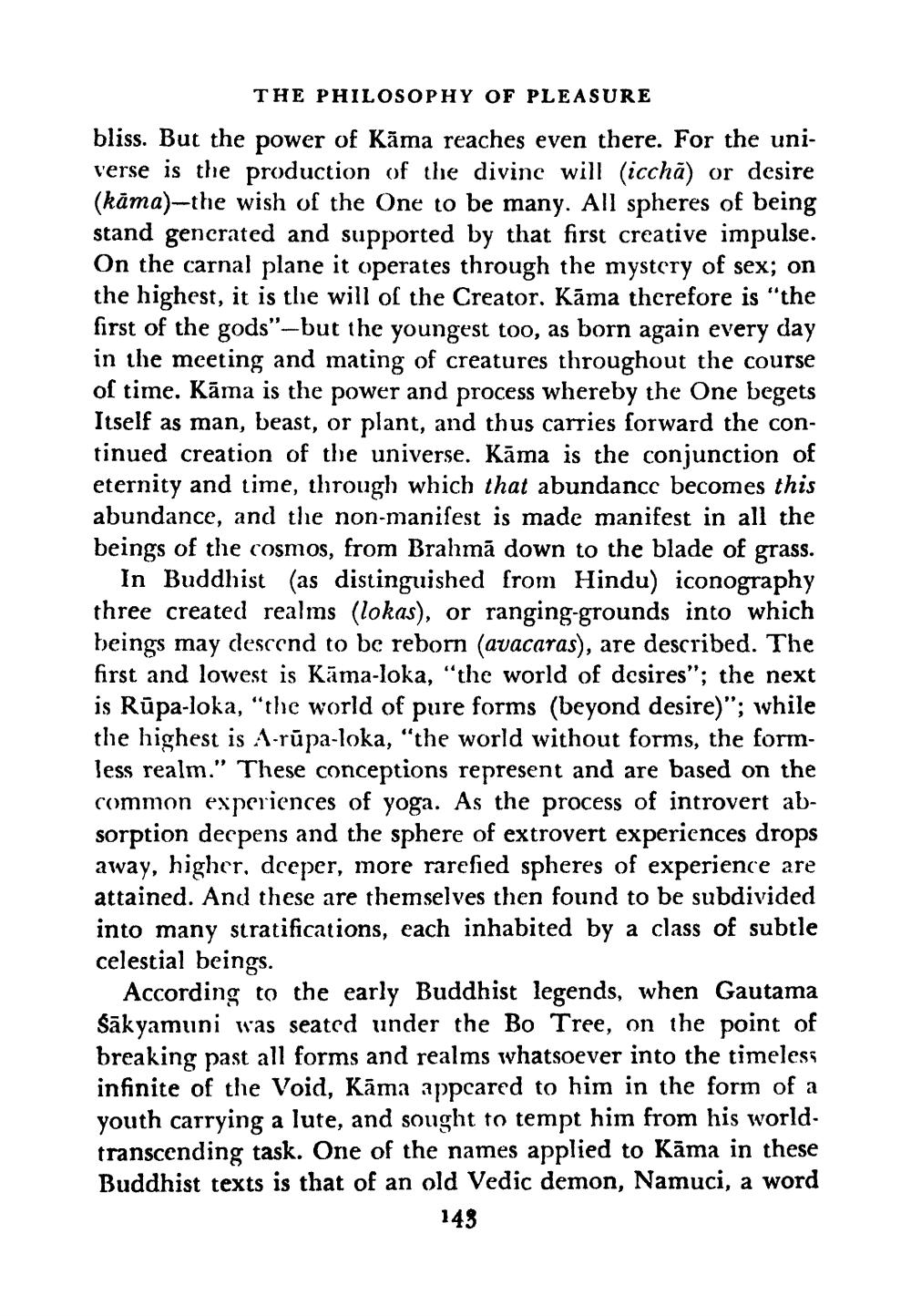________________
THE PHILOSOPHY OF PLEASURE
bliss. But the power of Kāma reaches even there. For the universe is the production of the divine will icchā) or desire (kāma)-the wish of the One to be many. All spheres of being stand generated and supported by that first creative impulse. On the carnal plane it operates through the mystery of sex; on the highest, it is the will of the Creator. Kāma therefore is "the first of the gods”—but the youngest too, as born again every day in the meeting and mating of creatures throughout the course of time. Kāma is the power and process whereby the One begets Itself as man, beast, or plant, and thus carries forward the continued creation of the universe. Kāma is the conjunction of eternity and time, through which that abundance becomes this abundance, and the non-manifest is made manifest in all the beings of the cosmos, from Brahmā down to the blade of grass.
In Buddhist (as distinguished from Hindu) iconography three created realms (lokas), or ranging-grounds into which beings may descend to be reborn (avacaras), are described. The first and lowest is Kāma-loka, "the world of desires"; the next is Rūpa-loka, "the world of pure forms (beyond desire)"; while the highest is A-rūpa-loka, "the world without forms, the formless realm." These conceptions represent and are based on the common experiences of yoga. As the process of introvert absorption decpens and the sphere of extrovert experiences drops away, higher, dceper, more rarefied spheres of experience are attained. And these are themselves then found to be subdivided into many stratifications, each inhabited by a class of subtle celestial beings.
According to the early Buddhist legends, when Gautama Sākyamuni was seated under the Bo Tree, on the point of breaking past all forms and realms whatsoever into the timeless infinite of the Void, Kāma appeared to him in the form of a youth carrying a lute, and sought to tempt him from his world. transcending task. One of the names applied to Kāma in these Buddhist texts is that of an old Vedic demon, Namuci, a word
149




